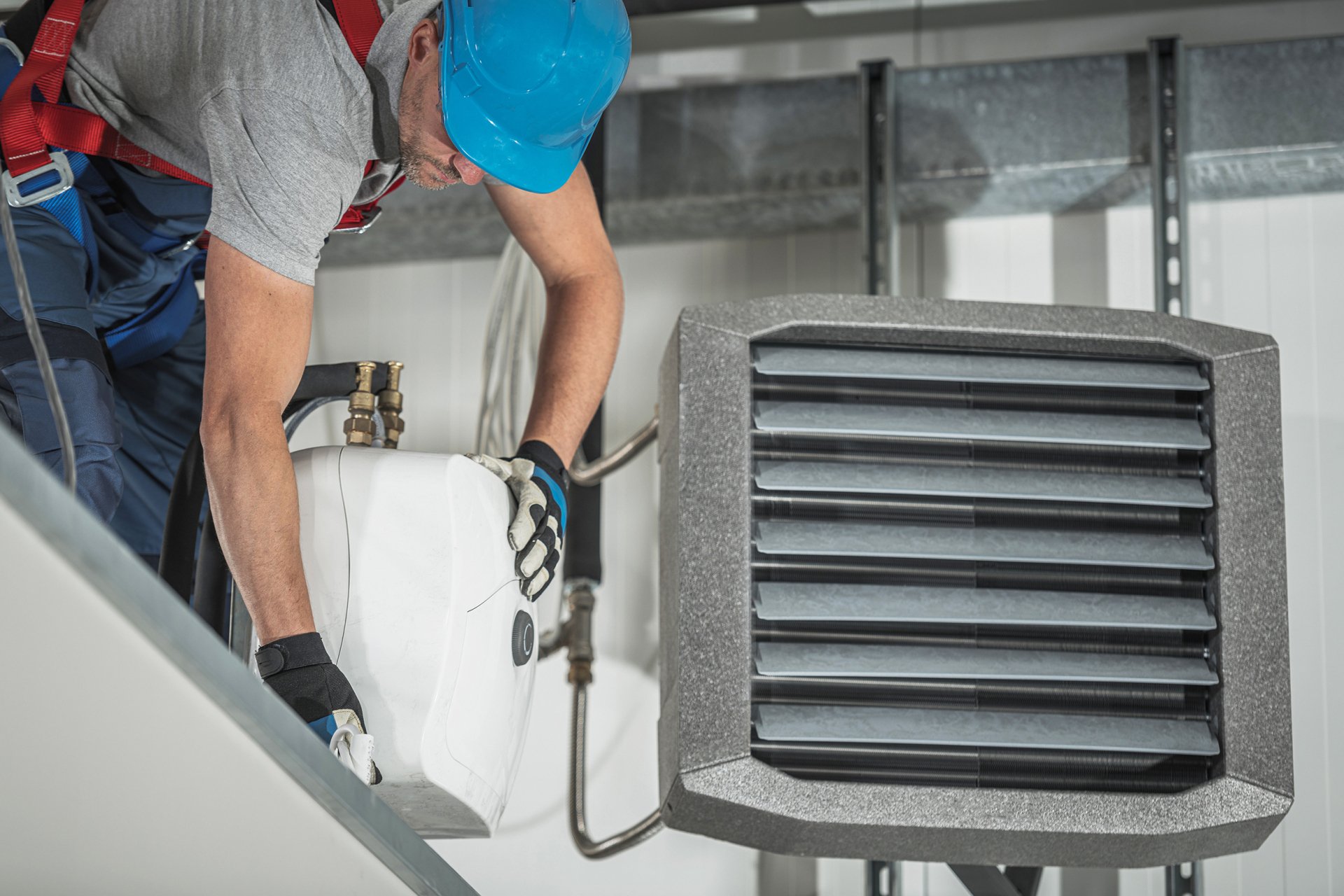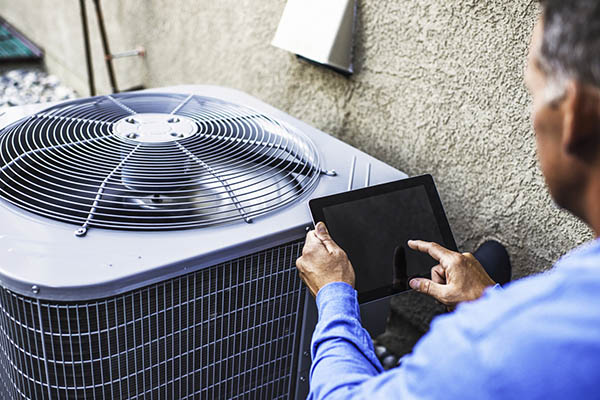Comparing Costs of Repair vs Full furnace replacement
Comparing Costs of Repair vs Full furnace replacement
Blog Article
Picking Between a Heatpump and Furnace: Key Factors To Consider for Your HVAC Demands
When reviewing home heating choices for cooling and heating needs, the choice between a heat pump and a furnace can be complicated. Each system offers unique benefits customized to certain climates and power effectiveness goals. Recognizing these distinctions is essential for making an enlightened option. Key variables such as setup costs and ecological impact better complicate the selection procedure. Which option absolutely lines up with one's convenience and sustainability preferences? The adhering to sections will certainly discover these factors to consider thoroughly.
Comprehending Heat Pumps: How They Function and Their Benefits
While lots of homeowners take into consideration various home heating options, comprehending how warm pumps feature and their advantages can substantially influence their decision. Heatpump operate by transferring warmth rather than creating it. In the winter season, they remove warmth from the outside air or ground and transfer it inside your home, while in the summer, they reverse this process, cooling the home by getting rid of warmth outside. This dual performance makes them functional for year-round environment control.One of the primary benefits of warm pumps is their power performance. They use significantly much less power compared to conventional home heating systems, possibly causing reduced energy expenses (heat pump replacement ooltewah tn). In addition, heatpump have a smaller carbon footprint, making them an eco-friendly selection. They additionally require less upkeep than conventional systems, contributing to long-term cost savings. In general, comprehending the auto mechanics and advantages of warm pumps can assist house owners make educated choices concerning their home heating and cooling requirements
Exploring Furnaces: Types, Procedure, and Benefits
Heaters are available in numerous kinds, consisting of gas, electric, and oil models, each with distinct functional systems. Comprehending these differences is necessary, as they affect effectiveness and heating performance. Furthermore, heating systems provide numerous benefits, such as regular heat outcome and dependability in chillier climates.
Sorts of Heating systems
Heater can vary considerably in design and procedure, with heaters being a prominent selection amongst house owners. There are several kinds of heating systems, each using various gas sources and modern technologies. Gas heating systems prevail, leveraging all-natural gas to create heat successfully. Electric furnaces, on the various other hand, utilize electrical resistance to produce heat, commonly favored for their simple installation. Oil heating systems, while less typical, work in locations with limited gas gain access to (furnace replacement). In addition, condensing heaters optimize power efficiency by capturing and recycling exhaust gases. Each kind operates with a system of warmth exchangers and ductwork to distribute warm air throughout a home. Recognizing the distinctions between these heater types is necessary for informed a/c choices
Benefits of Heating systems
For homeowners seeking trusted warmth during chilly months, the benefits of heaters are significant. Heating systems give consistent heating, making sure even temperatures throughout the home. They are specifically reliable in extreme cold, commonly surpassing heatpump in icy problems. Numerous kinds, consisting of gas, electrical, and oil furnaces, offer versatility to satisfy varied requirements and preferences.Furnaces likewise tend to have reduced initial installment prices contrasted to heatpump, making them a much more accessible option for numerous. Their robust design contributes to a longer life-span, with several devices lasting over 15 years with appropriate maintenance. Furthermore, contemporary furnaces are typically outfitted with innovative innovation for enhanced effectiveness, which can result in reduced energy costs. On the whole, heaters stay a trustworthy option for reliable home heating.

Power Performance: Comparing Warmth Pumps and Furnaces
When comparing power performance between heatpump and heaters, the Seasonal Energy Efficiency Ratio (SEER) plays a crucial role in figuring out performance. Furthermore, a functional price analysis discloses the lasting monetary effects of each system. Understanding these variables can direct house owners in making educated choices concerning their heating services.
Seasonal Energy Effectiveness Proportion
Energy effectiveness plays a vital function in the decision-making procedure in between heatpump and heating systems, especially when thinking about the Seasonal Power Performance Proportion (SEER) This metric measures the cooling performance of heatpump over an entire cooling period, providing a standardized way to evaluate efficiency. Higher SEER rankings suggest higher power performance, translating to lower energy consumption and decreased utility expenses. On the other hand, heating systems are typically examined making use of the Yearly Gas Application Effectiveness (AFUE) rating, which reflects home heating efficiency. When comparing these two systems, homeowners should focus on SEER rankings for heatpump, as they straight effect general power cost savings and environmental sustainability. An extensive understanding of SEER can significantly influence the long-lasting contentment and cost-effectiveness of the picked a/c solution.
Operational Price Analysis
Understanding the operational prices connected with heatpump and heating systems is essential for house owners examining their choices. Heat pumps typically supply higher power effectiveness, transforming electric power into warmth with minimal waste. This causes lower month-to-month utility costs, especially in modest environments. On the other hand, typical heating systems, specifically gas models, might have lower in advance prices however can sustain higher operational costs over time because of sustain prices and effectiveness ratings.Moreover, heatpump can function as both heating and cooling down systems, potentially decreasing the demand for separate a/c units. While first financial investments for warmth pumps may be higher, their long-term financial savings in power effectiveness can make them a more economical selection for many homes. Mindful analysis of neighborhood power rates is important to determine the very best alternative.
Setup Expenses: What to Expect for each and every Heater
Installation costs for heating systems can vary significantly in between heatpump and furnaces, influencing property owners' decisions. Warm pumps normally have greater in advance setup expenses, commonly varying from $3,500 to $8,000, depending special info on the device dimension and intricacy of installment. This includes the outside unit, indoor handling system, and needed ductwork modifications. Alternatively, furnaces tend to have reduced initial expenses, balancing in between $2,500 and $6,000, which can be appealing for budget-conscious house owners. Nevertheless, setup expenses can raise if extensive ductwork is required.Moreover, the selection of gas type for furnaces-- gas, lp, or electric-- can also influence installment prices. While heatpump offer energy efficiency, their first investment might prevent some purchasers. Ultimately, evaluating installment expenses along with long-lasting savings and performance will assist homeowners in making educated decisions concerning their heating systems.
Environment Factors To Consider: Which System Performs Much Better in Your Area
Exactly how do environment problems affect the performance of furnace? The efficiency of heat pumps and heating systems can vary considerably depending on the regional environment. In moderate environments, heatpump stand out by effectively moving warmth from the outside air, making them an energy-saving option. Their effectiveness reduces in exceptionally chilly temperatures, where they might battle to remove sufficient warm. On the other hand, furnaces, particularly gas models, provide constant and reputable warm regardless of exterior problems, making them more effective in chillier regions.In locations that experience milder winters months, heatpump can run efficiently year-round, providing both cooling and heating. On the other hand, a knockout post areas with severe winters months often take advantage of the toughness of heaters. Eventually, recognizing the regional environment is essential when determining between a warm pump and a heating system, as it directly affects their functional performance and total efficiency.
Maintenance Needs: Long-Term Take Care Of Warm Pumps vs. Furnaces
While both heatpump and heating systems call for normal upkeep to guarantee peak performance, their particular needs and treatment regimens vary significantly. Heating systems normally require less frequent interest, with annual inspections sufficing to examine for gas leakages, tidy filters, and evaluate total capability. Their easier design usually permits uncomplicated repairs.In comparison, warmth pumps require biannual maintenance due to their twin function in cooling and heating. This consists of cleansing coils, inspecting cooling agent degrees, and ensuring that both the indoor and outside units function at their best. Additionally, warm pump maintenance frequently entails even more complex elements, making specialist servicing essential.Neglecting maintenance can lead to diminished performance and boosted energy costs for both systems. Eventually, homeowners ought to think about these lasting care needs when selecting between a heatpump and a heater, as proactive upkeep can extend the life expectancy and performance of either system significantly.
Ecological Influence: Choosing a Lasting Home Heating Choice
The environmental effect of heating unit my latest blog post is a crucial examination for property owners seeking lasting alternatives. Heat pumps are normally more energy-efficient than conventional furnaces, as they move warmth rather than create it, substantially reducing carbon exhausts. By using renewable resource sources, such as air-source or geothermal heatpump, house owners can further minimize their ecological footprint.On the various other hand, all-natural gas heating systems release greenhouse gases and add to air pollution, though they typically offer higher warmth output. Advancements in modern technology have led to the development of high-efficiency furnaces that lessen emissions.Ultimately, selecting a heating system entails evaluating effectiveness versus ecological effect. House owners are encouraged to review neighborhood power sources and motivations for eco-friendly systems, guaranteeing an option that aligns with both individual comfort and environmental duty. The decision influences not only instant comfort however additionally long-term sustainability and ecological health and wellness.
Regularly Asked Concerns
The Length Of Time Do Warmth Pumps and Furnaces Generally Last?
The lifespan of heatpump commonly varies from 15 to 20 years, while heating systems can last in between 15 to thirty years. Normal upkeep significantly affects their long life and efficiency in giving heating services.
Can I Make Use Of a Warm Pump in Extremely Cold Climates?
Heatpump can operate in exceptionally cool environments, yet their efficiency decreases as temperature levels decline. In such problems, extra home heating sources may be required to maintain comfy interior temperatures and guarantee peak efficiency.

What Is the Sound Degree of Warmth Pumps Versus Furnaces?
The sound levels of heatpump and furnaces vary considerably. Generally, heatpump run more silently than standard heaters, making them preferable for those delicate to appear, while furnaces might create louder functional noises during heating cycles.
Are Warmth Pumps Suitable for Both Cooling And Heating?
Warm pumps are certainly ideal for both heating and air conditioning (heat pump installation ooltewah tn). They operate by moving warmth, giving reliable temperature control year-round, making them a versatile selection for homeowners looking for an all-in-one cooling and heating service
What Size Home Heating System Do I Required for My Home?
Determining the proper dimension furnace for a home calls for reviewing factors such as square video, insulation quality, regional climate, and the home's layout. Consulting a specialist can guarantee an exact analysis and perfect comfort. Heat pumps normally offer higher energy performance, transforming electric energy right into heat with very little waste. In modest environments, heat pumps succeed by efficiently transferring warmth from the outdoors air, making them an energy-saving option. On the other hand, furnaces, particularly gas versions, provide dependable and constant warmth no matter of exterior conditions, making them more effective in colder regions.In locations that experience milder winter seasons, heat pumps can operate successfully year-round, providing both home heating and cooling. Heat pumps are usually much more energy-efficient than typical furnaces, as they move heat rather than create it, significantly decreasing carbon emissions. By using sustainable energy resources, such as geothermal or air-source heat pumps, property owners can additionally minimize their ecological footprint.On the various other hand, natural gas heating systems produce greenhouse gases and add to air pollution, though they typically offer greater warm output.
Report this page